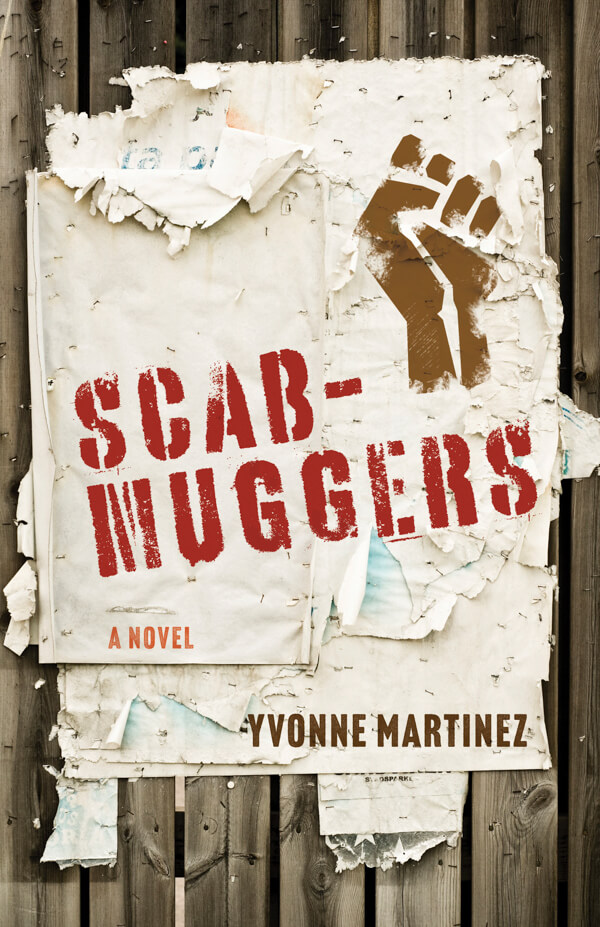
Yvonne Martinez is a retired labor negotiator/organizer. She has been published by ZyZZyVa, Crab Orchard Review, Labor Notes, and NPR. She also formerly wrote a local labor blog in the San Francisco Bay Area. Her forthcoming memoir in essays, Someday Mija, You’ll Learn the Difference Between a Whore and a Working Woman, covers her childhood in Salt Lake City/South Central/Boyle Heights and her work as a labor negotiator/organizer in California and the Pacific Northwest. Her play Scabmuggers is based on her experience as a National Fellow of the Harvard Trade Union Program in 1994. Yvonne lives in Berkeley, CA, and Portland, OR.
about SCABMUGGERS: A NOVEL

As soon as courses at Harvard begin, Ana, a White female, finds herself being stalked by Aaron, a Black male classmate. Word quickly gets out to the rest of the cohort—but not wanting to get anyone kicked out, Ana refuses to name names. With their program director insisting there’s nothing she can do to intervene if no one will name the perpetrator, the class becomes engulfed in a campaign to protect Ana that splits the group into two camps. Some of the men join the women to fight the harassment; some of the women join the harassers. In short order, the conflict becomes a fight for power that divides along race, sex, LGBTQ, and class lines—mirroring the heartbreaking history of the labor movement, and serving as a precursor to our current political landscape.
A galvanizing behind-the-scenes look at the labor movement of the 1990s, Scabmuggers is ultimately a triumphant tale of women’s empowerment. Ana and her friends may be outnumbered—but they won’t go down without a fight.
about SOMEDAY MIJA, YOU’LL LEARN THE DIFFERENCE BETWEEN A WHORE AND A WORKING WOMAN

At eighteen, Yvonne Martinez flees brutal domestic violence and is taken in by her dying grandmother . . . who used to be a sex worker. Before she dies, her grandmother reveals family secrets and shares her uncommon wisdom. “Someday, Mija,” she tells Yvonne, “you’ll learn the difference between a whore and a working woman.” She also shares disturbing facts about their family’s history—eventually leading Yvonne to discover that her grandmother was trafficked as a child in Depression-era Utah by her own mother, Yvonne’s great-grandmother, and that she was blamed for her own rape.
In the years that follow her grandmother’s passing, Yvonne gets an education and starts a family. As she heals from her own abuse by her mother and stepfather, she becomes an advocate/labor activist. Grounded in her grandmother’s dictum not to whore herself out, she learns to fight for herself and teaches others to do the same—exposing sexual harassment in the labor unions where she works and fighting corruption. Intense but ultimately uplifting, Someday Mija, You’ll Learn the Difference Between a Whore and a Working Woman is a compelling memoir in essays of transforming transgenerational trauma into resilience and post-traumatic growth.

